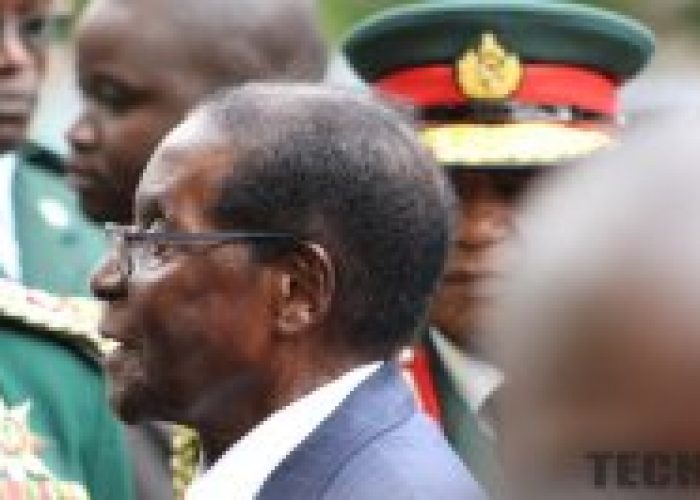



Robert Mugabe has died. The man has been around for so long and has impacted life in Zimbabwe so much that his death at 95 can still feel like a surprise. Here is an attempt to track how Uncle Bob impacted the Zimbabwean technology ecosystem.
The rise of African nationalism in the late 1950’s and the organisation of that movement under leaders like Joshua Nkomo, Ndabaningi Sithole was very significant to this country’s social dynamics. Robert Mugabe joined this movement in those formative years and quickly rose to become one of the most recognisable leaders of it.
Of course Mugabe led (together with others) a 15 year war to liberate black Zimbabweans from colonial oppression and exploitation. The war culminated in the birth of an independent country in 1980 that promised equality and equality of opportunity. This in itself was an important thing in the development of the technology sector in Zimbabwe.
Under the minority segregationist government of Ian Smith, Zimbabwe (then Rhodesia and later Zimbabwe-Rhodesia) was quite a powerhouse in terms of innovation on the continent. The country was way ahead of the trend when it came to alternative energy development for example with viable research and development into stuff like biofuels. This was of course fueled by the need to survive sanctions that were imposed on the country against the racism and oppression of the majority.
With the coming in of the Mugabe government at independence, most of this research and development was gradually abandoned. In the energy sector I mentioned above, developments all but ceased. The thinking was quite myopic there: ‘well there are no more sanctions, we can import whatever we need.’
However, the granting of basic freedoms to the majority was more a positive step than any negative that came from abandoning R&D. With the coming of majority rule, a lot more Black Zimbabweans could dream than under the colonial regime. Dreams give rise to creativity and creativity when acted on brings technology and innovation. Careers that were not possible for blacks were now accessible. This impact is easy to miss because generally impact of such core fundamental elements is not clearly visible or measurable.
Mugabe was an educator by profession and perhaps it is this background that drove his decisions post independence more than any other. At a time when his government was being advised to approach the roll out of basic education to the whole population gradually, Mugabe was adamant that it needed to be done now and not in phases.
Schools were built in haste and most of them through the mobilisation of communities to mould bricks, do the actual building etc. Even so, education was not waiting for schools to be built, students were learning under the shade of trees while classrooms were being built or would be built.
Adult classes (mostly in the evenings) were made mainstream almost. Former guerrilla combatants in the just ended war were encouraged to attend these classes and take schooling all the way to university if they could. Special schools mainly focused on imparting skills were deployed. These were called upper tops. Sadly these were viewed as second rate schools by the majority and Zimbabweans were on course to value academics more than the practical as they still do today.
Mugabe’s emphasis on education caught on with the population with the legacy that probably nothing is valued more than education by any regular Zimbabwean family. This of course resulted in the establishment of a strong human capital base on which technology development and entrepreneurship could (presumably) thrive.
Education also gives rise to unrest and this is what those who were advising gradual steps were arguing in the first place. People with an above basic level of education become uninterested in ‘lower jobs’ and begin to desire better. It results in both high unemployment and labour shortages at the same time. At times this is quite evident in Zimbabwe, there are numerous educated (unemployed) folks but sometimes very few skilled ones especially creative and maker skills which drive technology development.
That as it may, Mugabe and his education policies instilled a sense of pride in Zimbabweans. This pride is of course very negative at times and is expressed as arrogance in many instances. For example, the average Zimbabwean believes that Zimbabwe is the most educated country in Africa and one of the best ones in the world. We don’t know where the data to support that is housed. Arrogance is dangerous; people that believe they are more learned than anyone else essentially stop learning. BUT pride even when it becomes arrogance is better than shame, it births a determined spirit that is so needed for entrepreneurship and innovation.
Did Mugabe believe in entrepreneurship? He must have but he may not have had an idea of how to foster it. Robert Mugabe pursued a policy of empowerment for the black majority in every sphere of society. This was noble and of good merit in principle. However, his way of doing this was heavy government involvement in business and top down promotion of business venture. The state and not the market at times determined which business would survive and which would not. This led to cronyism and exploitation of the empowerment opportunities by the very few at the expense of the majority
Innovation dies under such a regime and in many ways, innovation died in Zimbabwe. When businesses owe more to a politician’s magnanimity than they feel they owe their customers, the landscape becomes toxic. Mugabe’s idea of business promotion was mostly toxic. The opportunity cost of this in terms of innovation is very high and probably unquantifiable.
The story of how one of Zimbabwe’s most celebrated entrepreneurs fought the government to get a license for his mobile network operation which has become Zimbabwe’s largest by far is well documented. This is one of the problems with the Mugabe style of indigenisation, if you are not favoured at the time or are not willing to grease hands, you face opposition.
Eventually, Masiyiwa got his license and established Econet. Unwittingly, by refusing him the license in the first place, Mugabe’s government gave Econet a very good founding story which has benefited their brand immensely in my view. They are the David in the David and Goliath story. The story ends the same, David becomes king. Econet is one of the most influential companies in Zimbabwe. Even its spin-off Cassava Smartech became the most valuable company on the Zimbabwe Stock Exchange by market capitalisation on the day it was spun off and listed.
Masiyiwa has not set foot in Zimbabwe in two decades or so. This is a lost opportunity for Zimbabwean entrepreneurship particularly tech entrepreneurship to get some of the inspiration he would undoubtedly be.
Mugabe presided over a remarkable decline in economic performance. This resulted from a combination of bad governance, corruption, aggressive foreign policy and plain old stubbornness. It’s sad that such a leader who ushered in much to celebrate is now mostly remembered for his repression and the country’s economic tailspin.
The shrinking of the economy over a very long period reduced people’s livelihoods and thus lowered demand for goods and services beyond the basics. There is no much innovation when there is no market to absorb the innovation. Businesses closed. those that stayed open could not sustain meaningful R&D budgets. Zimbabwe began regressing and is currently behind the curve even when compared to other African countries that are not doing too well on the technology front.
Following the economic hardships and the increasing lack of opportunities, a massive brain drain occurred. Millions of Zimbabweans left the country. Many of them highly educated and some very skilled (in a situation were skills were already scarce). Now there are a lot of Zimbabweans out there moving frontiers in science and technology and other spheres.
The line of causality is difficult to draw though. Would these people have achieved so much if the situation in Zim had been comfortable and they never moved? Is it better that they are out there and are contributing through remittances at these trying times? I am inclined to think the brain drain is a net negative even though some of the innovations diaspora Zimbabweans are making to human society could not have been made while they were here.
Throughout this ‘eulogy’ it has been evident that Mugabe was a two-sided coin. Even his biggest failures had significant upsides to them. His arguably biggest contribution: education has downsides as well. To cap this dichotomy and end this long eulogy (can’t be the guy who never finishes speaking at a funeral) I’ll mention Zimbabwe, a near cashless society.
The cashlessness is more literal than we would prefer but indeed we are a cashless society. Most countries want to reach this state of affairs but we are here already all because the corrupt system Mugabe birthed looted our money and left us with a currency named after the system of settlement: RTGS$…
So do we morn for Mugabe? Do we celebrate his life? Are we glad that he is gone? It is sad that perhaps there are no such emotions at all. One can feel an air of indifference. Indifference is the worst reaction anyone can receive. Mugabe could have died better but he didn’t…
{{notice}}
If anything goes wrong, click here to enter your query.
Quick NetOne, Telecel, Africom, And Econet Airtime Recharge
The post Zim’s Technology Eulogy To Robert Mugabe appeared first on Techzim.